John Batchelor
Born: 23rd January 1941
Date Joined: January 1957
Personal Bests:
(Back In the day!)
880 yds 2:05.4
1 mile 4:21.8
2 miles 8:58.2
3 miles 13:57.2
5000m 14:26.8
6 miles 28 :41.0
Road
10 miles: 49:33
Half marathon: 66:12
20 miles: 1:43:27
M40:
5000m 15:20.7
10000m 31:45.9
Road
5 miles 25:09
10K: 31:12
Half marathon: 71:11
M65:
800m 2:32.9
1500m: 5:08.6
3000m 10:34.3
5000m 18:17.3
10000m: 38:27.6
Road
5K 18:21
10K 37:37
M70:
400m: 71.8
800m: 2:43.5
1500m: 5:30.1
3000m: 11:47.9
5000m: 19:49.82
10000m: 41:14.29
Indoors
800m: 2:42.66
1500m: 5:32.58
3000m: 11:45.76
M75:
800m: 2:47.7
1500m: 6:07.03
1 mile: 6:19.37
3000m: 11:47.9
5000m: 21:37.78
10000m: 41:14.29
Road
5K 21:45
Indoors
400m: 74.11
800m: 2:47.30
1500m: 5:46.54
3000m: 12:25.75
First Club Race: Would have been an inter-club cross-country fixture at Chigwell Row, running as a youth. My introduction to Ilford AC was the same as Tony Nixon’s, the Ilford Novices Cross-Country, where I first met Edgar Moon. He persuaded me to join the Club but wouldn’t sign me up until I passed 16. He was at my front door with an entry form on my 16th birthday! From then on he was a constant source of help and encouragement, as were so many of the Club members when I first joined and for many years afterwards, to this day.
Favourite Race: Road relays, because they are true team events but measure individual performance while not competing head to head against your own clubmates, which can be a distraction. Also nothing compares to cutting through the field from down the back on the second leg when the circumstances arise!
Notable Performances:
All my performances as a member of an Ilford AC team were notable in one way or another, good or bad, for being part of a dedicated group training and competing together in all weathers out of a sense of friendship, loyalty and sometimes guilt. We all turned out together, week in, week out, no questions asked, simply because that’s what we did.
Individually, however:
1965: Beating world marathon record holder Buddy Edelen in the Essex 6 miles in an unsurpassed Championship record of 28:41 and PB by 1:25 on a windy day in front of a large and enthusiastic (understatement) Ilford AC crowd.
1965: Second to 10 mile world record holder Mel Batty in Rochester ‘5’ beating UK 6-mile record holder and later International CC Champion Roy Fowler.
1965: Second to 2:15 marathoner Juan Taylor in Jean Bouin Road Race in Barcelona, beating 1964 International Cross-Country winner Francisco Aritmendi. 9600m (6 miles) in 26:39! (But downhill all the way…).
1966: Second to Mel in Essex Cross-Country Championships.
1966: winning Essex 20 miles in 1:44:36 (Championship record)
1981 & 1982: Twice winning the Southern Vets’ 10 miles, both times beating 9-times British Masters Cross-Country Champion Taff Davies.
National Masters titles at 10000m in 1981 & 1982 (M40) and 2011 (M70), at 5000m in 2006, 2007, 2009 (M65), 2011 & 2012 (M70) and 2016 (M75), at 10K road 2006 & 2007 (M65) and at 5K road 2011 (M70), and multiple M70 and M75 indoor titles from 400m to 3000m as M70 & M75, though often in a field of one in my age group!
Biggest Disappointment: Giving up job and leaving Ilford AC behind in 1967 to study in Edinburgh and run in the University team, which I failed to do through a niggling but persistent knee injury which lasted the three years I was away. However, I managed one race for Ilford in that time, the 1968 Essex CC Championships, and was last scorer in (I think) our last winning team! I also completed my PhD and got a good job in the London area, enabling me to run regularly for Ilford once again (and resume my old position as Club press secretary).
Typical Weeks Training:
For over two years I trained once or twice a week with Dennis Plater, running 10 to 20 miles or doing tough Fartlek sessions, in addition to my other training. This consolidated my endurance fitness and led to a major breakthrough in 1965. I will be forever grateful to Dennis for his help, encouragement and good company.
In my best years most training (once a day only) was done alone at (allowed extended) lunchtime from my workplace in Dagenham. A typical week may or may not have included an interval session on grass, eg 10x700yds in 1:50 – 1:52 with 350 yds jog recovery, but mostly road running, say 7 to 8 miles at 5:10 to 5:25 miling two or three times a week (starting at 6 minute miling and accelerating to sub-5 minute miling by the end), and a half-marathon at 72 minute pace similarly accelerating. Friday would be a “gentle” 5 miles in around 28:30, as most Saturdays I would be racing (almost all races in the sixties were on Saturday afternoons, even the road races in the heat of the day). If no race I might do a 20-miler in around 1:54, sometimes faster. My only track sessions were usually on Sundays, but I was often too tired to do a very extensive session of intervals like everyone else. I was often first in the Cauliflower.
Favourite Sessions:
Just getting out there and giving it a bit of wellie on a good day, to build confidence.
Who is the most Famous Athlete you Trained with or would like to train with:
Fergus Murray in his Ilford days (1964 Olympian) and Ilford’s own Dennis Plater , International marathon runner.
How would you improve the sport:
Lifetime ban for drug use. (I deny Frank Heaney’s charge that I took Phyllosan before I was 40!). More focus by the powers-that-be on Club-level athletics and perhaps on Masters Athletics as it is bigger than some may think.
Favourite Athlete or Sportsman:
Far too many to choose from. In the end I have to go with Zatopek, a true champion even before my time.
What other sports do you follow:
Tennis, but I’m not really a good spectator.
Best Country Visited :
Very difficult choice. In recent times Antigua, though the Highlands of Scotland take some beating if you catch some good weather.
Favourite Food & Drink :
I’ve never been a great sea food fan, but a large plate of battered squid goes down well in the right atmosphere (I’m thinking of a pub in Brockley that my daughter recommended).
For drink I think I’d go with Tony Nixon’s choice of Adnams. Their “Ghost Ship” is a nice tipple, and the alcohol-free version is quite acceptable if needed.
Favourite TV Shows:
Good historical documentaries. Definitely not reality TV or soaps!
Last Film Seen:
Stan & Ollie (I mean the recent one with Steve Coogan and John C. Reilly but I’ve got a stack of the 1930s films).
Last Book Read :
“Survival and Love: Double Escape from the Nazis” by Ted Bailey. Ted is a friend from “Athletes Reunited”, a group of “elderly” athletes founded by Woodford Green’s Tony Maxwell. Ted was a 9.9 sprinter (for 100 yards that is) and I believe was an Ilford member for a short time.
Favourite Band Singer:
I’ll pass on that one – I’ve never been much into vocal music, though George Melly was a scream in his day, probably for the wrong reasons! I first saw him at Ilford Town Hall in 1957.
Last Album Bought or Downloaded:
Mediterraneo (Milos – classical guitarist from Montengro)
Last Concert Attended:
“The Merry Opera Company” at St Martins in the Fields, last New Year’s Eve. Not many opportunities since lockdown, otherwise I would have been to Ronnie Scott’s for some Hard Bop.
Any Pets: No, but my first encounter with Ilford AC was when seeing members training in Hainault Forest while walking my dog and keeping fit, at the age of 12 or 13, so a pet ended up being rather influential in my life choices.
What are your aims for next season:
“Stayin’ alive”? I turn 80 next January, and regardless of my announced retirement would like to set one or two M80 PBs if my body lets me. I also hope to be out supporting Ilford AC a bit more than I have. I’ve lived Sarf of the River for the last 50 years, though still an Essex man at heart, but it’s easier to get to France from here than through the various Thames tunnels these days.
Tell us a Joke:
This is my current favourite. It’s a few years old but has recent relevance
While stitching a cut on the hand of a 75 year old farmer, whose hand was caught in the squeeze gate while working on cattle, the doctor struck up a conversation with the old man.
Eventually the topic got around to politicians and their role as our leaders.
The old farmer said, “Well, as I see it, most politicians are “Post Turtles”.
Not being familiar with the term, the doctor asked him what “a post turtle” was.
The old man said, “When you’re driving down a country road and you come across a fence post with a turtle balanced on top, that’s a post turtle”.
The old farmer saw a puzzled look on the doctor’s face so he continued to explain.
“You know he didn’t get up there by himself, he doesn’t belong up there, he’s elevated above his ability to function, and you just wonder what kind of dumb idiot put him up there to begin with!”.
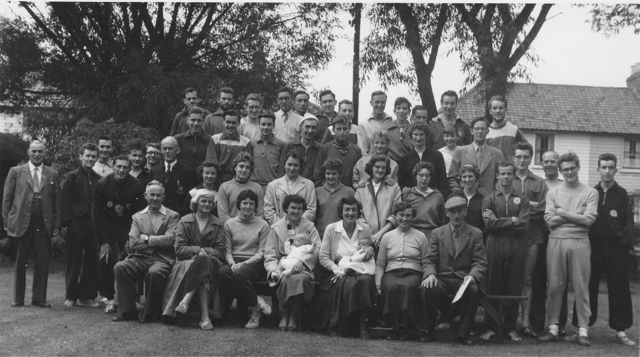
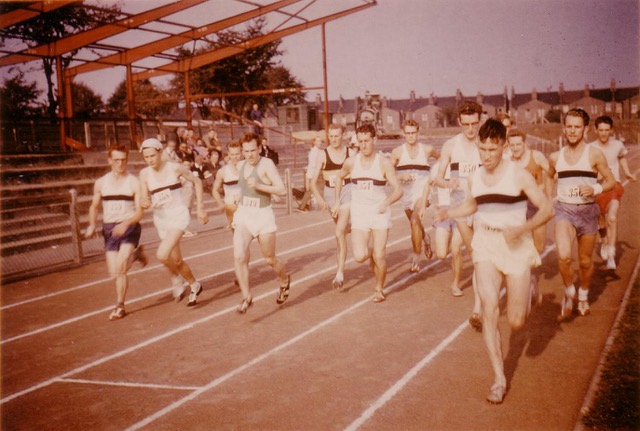
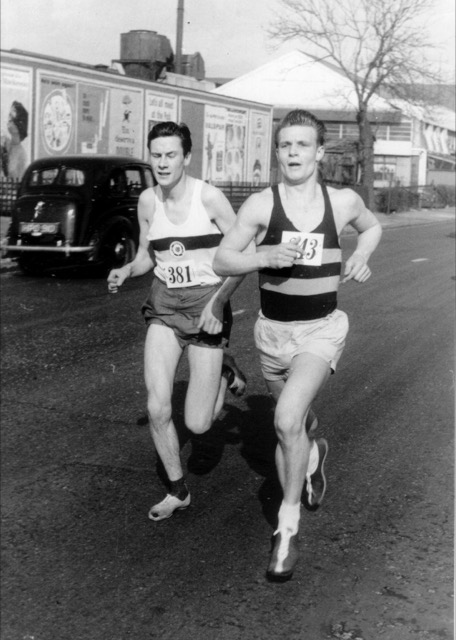
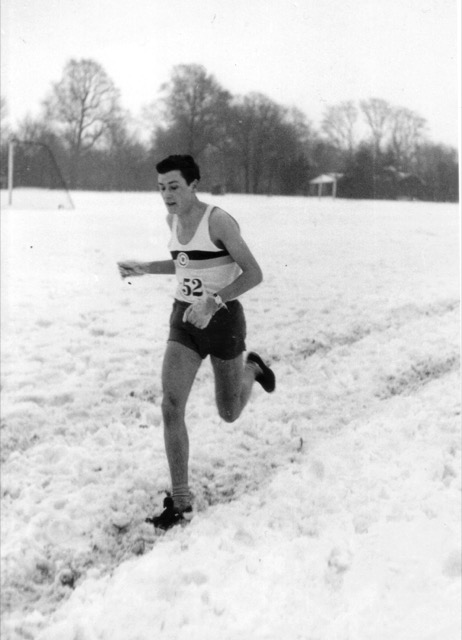
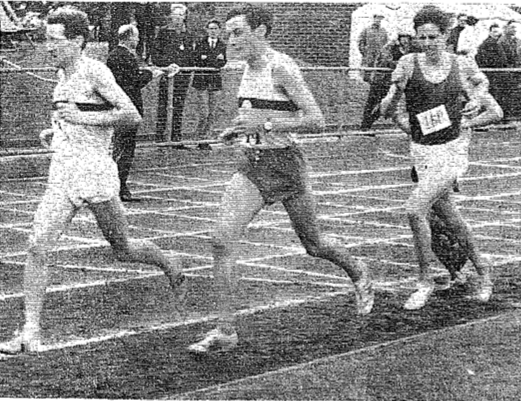

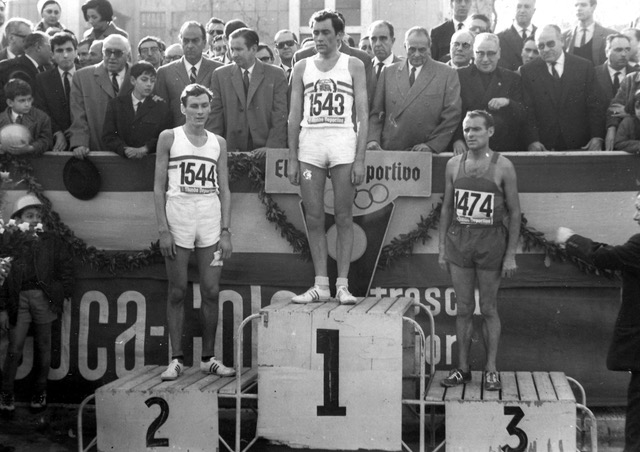
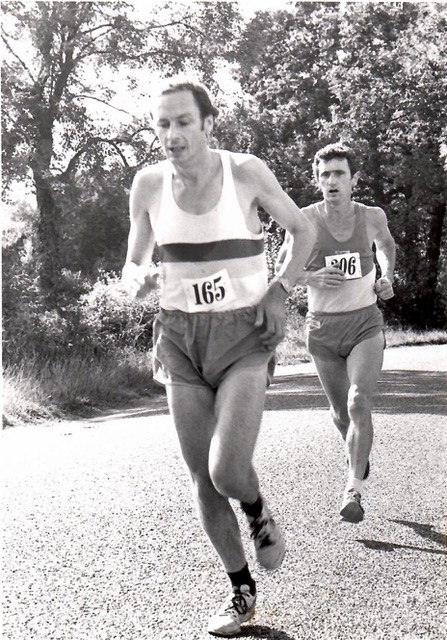

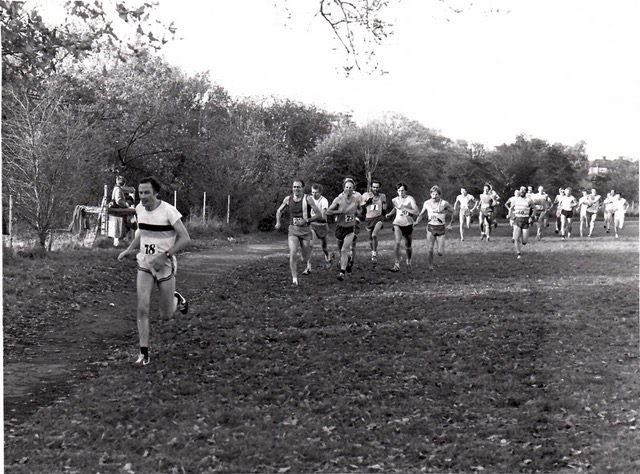

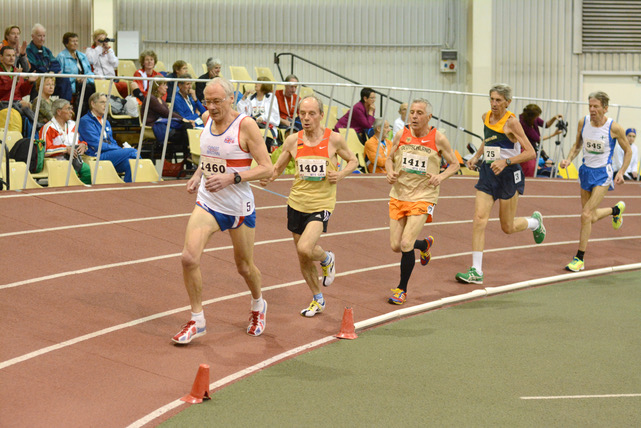

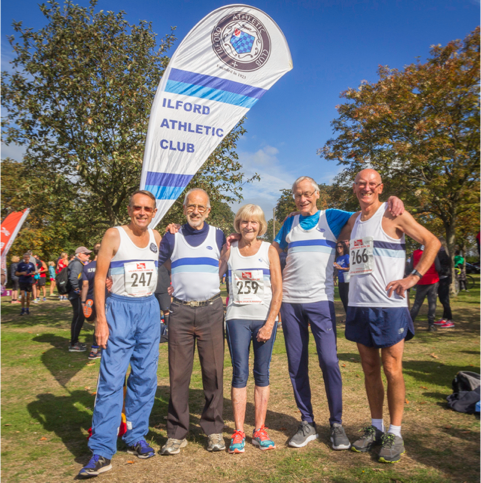
Your times from back in the day are exceptional and nowadays if you ran those times you would be a race winner regularly. Why do you think Race times and standards in general have dropped so significantly over the years until now? Especially with all the new technology and gels etc and science?
It’s simply a matter of dedication. You have to do the work, the mileage, the speed work, day in and day out. You can’t play at it but you have to enjoy it. Even in my time the dropout rate was high. How many are both willing and able to mesh in even an hour’s hard training with their professional or student life, not to mention social life, six or seven days a week? Having the best shoes and a sackful of gels won’t get you shutting the front door behind you on a cold winter’s night for 10 miles on the icy roads. Still, I wish I knew then what I know now of the science behind it all.
Did you ever follow a particular nutritional diet? Or what was a standard pre or post-race meal?
I was born during the war, brought up on food rationing, and couldn’t bear school dinners. Fortunately my mother fed us all a good, healthy, balanced diet based on meat and two veg and plenty of fruit. The idea of a balanced diet has remained with me, though it tends to be a little more Mediterranean these days. I don’t go for protein shakes and other supplements and have always been deeply suspicious about such things.
I have to say however that in the years I was training hardest, at lunchtime at work, there was no lunch, just half a large packet of McVities’ Chocolate Digestives with the morning tea break and the other half in the afternoon. Mum’s cooking when I got home – maybe late. I recall also that a fair amount of brown ale, taken in the Cauliflower, was part of my regular nutrition. I’m not sure it did me any good, but as it was taken with large numbers of Clubmates it provided the vital social life, reinforced the team bonding and undoubtedly contributed to individual and team success. Please don’t take this as a recommendation, though.
What type of trainers did you have in your heyday and approximate cost and did you change them regularly?
I must have started out with Woolies’ plimsolls. I can remember buying a pair of German-made leather road shoes (Rucanor) for 23 shillings (£1.15) from a sports shop in Gants Hill, and also getting a bespoke pair of kangaroo leather shoes from Law’s of Wimbledon which I considered to be superb. The game changer was the appearance on the UK market of Onitsuka Tiger (now ASICS) Cubs, a lightweight (no more than 150g I would guess) canvas-topped minimalist foam rubber-soled shoe. They cost about £2 a pair and I had many over the years (the heels could be repaired using a glue gun). I used them for all distances, training and racing, as did many of the top runners. I still prefer minimalist shoes and have a collection of Nike Mayflies which though “designed for 100Km” seem to go on forever on a treadmill or a synthetic track. (£25 in 2006).
You say you live South of the Water for over 50 years – what town and did you ever consider joining a different club to train with down there?
When I finished my PhD in Edinburgh I got a job with the Wellcome Foundation in Beckenham, and have lived there for fifty years. I was able to train at lunchtime there as I had previously in Dagenham. I spent every weekend at my parents’ home in Hainault and even during times when a lingering injury prevented me from running I supported Club activities on the country, road, track (and in the Cauliflower). I was Press Secretary for about three years, as I had been in the sixties, and used to drop the type-written carbon-copied paper reports at both the Ilford Recorder and Guardian on the drive home on Sunday night. When I retired from work (aged 54 through forced but welcome redundancy) I coached kids at Blackheath Harriers for about eighteen months. I am a member of Veterans AC and have competed for them, and likewise Southern Counties Veterans’ AC, but Ilford remains my first-claim club. My club vest is older than most of you!
What was your occupation?
I was a Research Chemist. At May & Baker in Dagenham I worked on photographic chemicals and perfumery (in the broadest sense, e.g. they made sewage-masking chemicals). At Wellcome I was a medicinal chemist. Not by any means a sedentary job (until kicked up to a managerial position, which I resisted) but quite amenable to fitting in daylight training.
Your training runs were very quick – in fact race speed for most mortals – why was that?
The general principle I followed was that I should not be so tired after a training run that I couldn’t repeat the same session next day. Most of the time I achieved that. I think the speed of the runs derived from having to fit in worthwhile training, including changing and showering and a 500m warm up and warm down jog to the factory gate, into a 1 hour lunch break, so at first the short runs needed to be fast. I got a lot quicker at changing and showering so the runs got longer but not slower. Then my boss let me take an extra half hour for lunch and I could fit in a half marathon out to Upminster and Rainham if I got a move on. Eventually I would be finishing at 4:45 miling pace for the last mile. That was my speed work. Even prior to that I found longish acceleration runs more effective than intervals on the track. The most important things were the necessary discipline involved in fitting in the training with work, and not having to train in the dark. There were other benefits in having evenings free.
Have you ever run a marathon? If so, what times did you achieve?
After I ran my first 20-miler in April 1966 my season became geared to seeking selection for the English Commonwealth Games team. In short I got it all wrong by racing and training too much and too hard, right up to the trial – the Poly Marathon from Windsor to Chiswick, by which time I’d blown it. I had no concept of tapering. I had set myself a target of around 2:17 (the world record then was 2:12), which on the day, and probably in any case, was totally unrealistic even in the best of conditions.
The race was on a hot and humid Saturday afternoon in June. I was unwell from hay fever and dehydrated after a 2-hour journey to Windsor. The tarmac on some stretches of road was melting. Under the then UK rules no drinks were allowed for the first ten miles then at 5 mile intervals thereafter. (Think about it, you bottle-carriers). As we all considered ourselves “tough guys” in those days some of the greats in the race didn’t drink at all. I foolishly passed at 10 miles, but the water at 15 miles (1:22:00) was the best drink I’ve ever had bar none. Too late! I was peeled off the road 2 miles later.
In those days what was Ilford AC’s Greatest rival local club?
When I joined, Ilford AC as a mixed club had no serious local rivals. The nearest really good mixed club was probably Birchfield Harriers in Birmingham. But of course the Ladies usually competed separately, or at least against different clubs at the same venue. There were very few mixed meetings and no mixed championships. On the men’s side obviously Woodford Green (without Essex Ladies) and Essex Beagles (before Newham as a borough even existed) were our main local rivals but other Essex clubs were beginning to make their presence felt, especially in the younger age groups. Over the country Ilford AC competed more on the London rather than the Essex scene, hence our presence in the Metropolitan League (founded by Ilford’s Howard Williams) rather than in an Essex League.
Are you planning on doing any more World or European Masters Championships?
As of March I formally retired as I have developed atrial fibrillation and can’t run as well as I did. Strangely, now the condition has become permanent and more stable I am able to train lightly again. I doubt if I will compete again in international events as once past 80 it is almost impossible to get reasonable travel insurance that includes competition even if you are in the best of health. Domestically I would at least like to set some M80 PBs in competition, but we’ll see.
Nowadays the streets have so many runners as its much more fashionable but you must have been an oddity in your day when training on your own as not many people ran for sport etc so do you have any stories to tell from those days when out running on your own in the 1960s?
I don’t remember anything particularly remarkable happening when on my own, but I do remember a group of us in the freezing winter of 1963 finishing a 15-mile training run along Ilford High Road. Abuse was shouted at us from the Cinema queue as we passed – “you must be f****** mad” or the like, until we forcefully demonstrated in similar language that we were warm and comfortable and they were anything but!
As you had a full-time job what time of day did you use to train?
As I said previously, mostly at lunchtime, though with many enjoyable evening runs with Dennis Plater. As far as solo evening training was concerned, particularly after dark in winter, I learned that the hardest part of any run was closing the door behind me as I left (especially if dinner was cooking).
What’s happened to your trophies and medals? Are they on display in the Batchelor household?
I have some items on display which were set up by my wife and daughter. Many of my Masters’ medals are dangling around a light fitting in front of me as I type. Most of my earlier medals are in what I believe to be my great-grandfather’s sea chest.
What one piece of advice would you give to any Runner trying to improve?
In the early stages find your own way to motivate yourself and enjoy the training and competing. Enjoyment is the key. Soon even the hardest training will become a source of enjoyment. (Well you only asked for one piece of advice…)
What was your favourite surface? Track or Road or Cross-Country and what did you excel most at?
Road, definitely, though I loved racing barefoot on a good grass track occasionally. I wasn’t fond of the old “cinder” tracks – some in the London area were just that – though Cricklefields wasn’t bad.
You have listed all your times in old money, can you convert for our younger readers and tell us how you converted?
Before everything went metric there were standard conversion adjustments applied to compare linear and metric times, so my best linear times would have translated to 800m: 2:04.7 1500m: 4:03.8 3000m: 8:22.0 5000m: 14:25.2 10000m: 29:41.0
You mentioned Zatopek, but some people never will have never heard, do you believe the rumours of 20x 200, 40x 400 and 20 x200 were true?
If I could find where I put my copy of Zatopek’s own autobiography (in the original Czech) I could verify from the man’s own words. I’m sure he did those mammoth sessions, not sure how often or over what length of his career, but searching for what’s on the web it seem his sessions may have been out in the woods rather than on a track, resembling short recovery Fartlek.
You don’t have a marathon time, did you ever do one?
Attempted (to race – not just run) as previously described. At least I built up to it over a period of ten years, unlike many these days who begin (and often simultaneously end) their athletic careers by trying to run a marathon.
How many years since you ran in Hainault Forest? Do you think you could still find your way around it?
The last time I can recall is in 1985, when I ran there in the Essex Vets Cross-Country. By that time I had experienced 37 years of dog-walking, leisure walking, training and racing there and had just about had enough of it. My daughter was about to be born at that time and from that point I was semi-retired for ten years or more. I know the Forest has changed a lot, but I suspect I would find it impossible to get lost, just too expensive to get parked.
The picture at the start of the club six mile championships in 1962 looks very much like Cricklefields in Ilford. Was it?
It certainly was, and I can smell the old glue factory over the back every time I look at the picture. As you can see an actual stand was in the process of construction, not often filled to capacity but a great improvement on cold and windy training evenings. It’s worth noting that the race started halfway down the track, as was the case with all distance races at that time in small meetings.
Did you run for your school? Did any of your teachers have any influence on you taking up running?
School was the start of my running career. Buckhurst Hill County High had a great reputation at cross-country when I first went there. Two of the Ilford AC team who won the National Youths’ Cross-Country Championship in 1952 were pupils there at that time. I was encouraged by PE teachers Reg Cave and Roger Webb (who was a friend of Ron Pickering, then teacher at Wanstead County High). In my last couple of years at school I often raced twice a week, once for School and once for Ilford AC. It took me until my last year to win a school cross-country championship in any age group.
Have you ever done a parkrun? What is your opinion on parkruns?
I’ve not done a parkrun, but I don’t rule it out. The 9 am start is the biggest problem for me.
I think the park runs are great for introducing masses of people to the joys of running. It’s a far more sensible route than volunteering to run a marathon from scratch and having to raise hundreds or thousands of pounds for the privilege. Clubs should certainly not view Parkrun as a threat, but more of a recruitment opportunity.
You are ranked No 1 in Britain in the V75 400 indoors with a time of 79.73 in February this year, which is an incredible time. Do you still do speed training specifically? If not, what is your typical weeks exercise nowadays.
I did do a few “speed” sessions, mostly on a gym treadmill, and generally following a regular daily 5K either on or off a treadmill, but in my advanced years I am fortunate to have retained speed off endurance running that most of my distance-running peers haven’t. Real sprinters in this age group begin to run out of steam at 400m so I am jumping into a gap between two disciplines. I was actually approached by a coach (5 years older than me) offering to make me into a proper 400m runner. I didn’t run 440yds/400m from my last School sports day until I was 70. By “speed” note that the fastest I can run 100m off a rolling start is about 17.5 seconds, which leaves me gasping for air. That’s 2:03 marathon pace.
You could have a fantasy dinner party and invite 6 people, alive or dead. Who would they be?
Through the auspices of Woodford Green AC and schooldays rival Tony Maxwell’s “Athletes Reunited” I have been fortunate in recent years to have had my fantasy pub lunch with very many of the athletic idols of my youth, on more than one occasion. To shamelessly name-drop these lunches have included folk like Ron Hill, Jim Hogan, Gerry North, our own Alan Perkins, Mel Batty, Dave Bedford, Diane Leather, Wendy Sly, Pat Lowe, Paul Nihill and so many other stars of our favourite sport. On one occasion we had seventeen Olympic athletes line up for a fake start outside a pub near London Bridge. The passing public had no idea of the famous athletes they were seeing. For me, “been there, done that”, like a little boy in a sweet shop. Thanks Tony!
